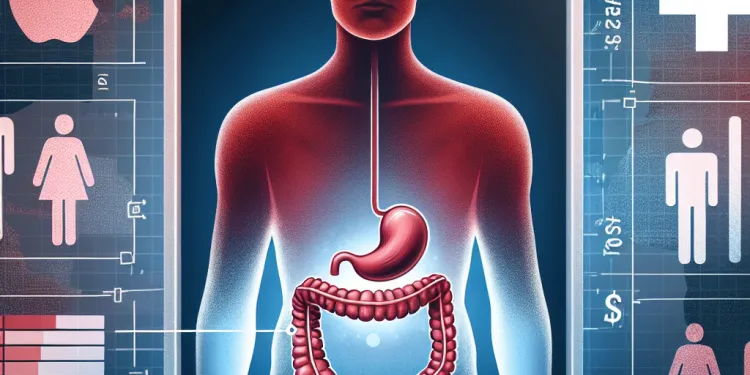
Find Help
More Items From Ergsy search
-
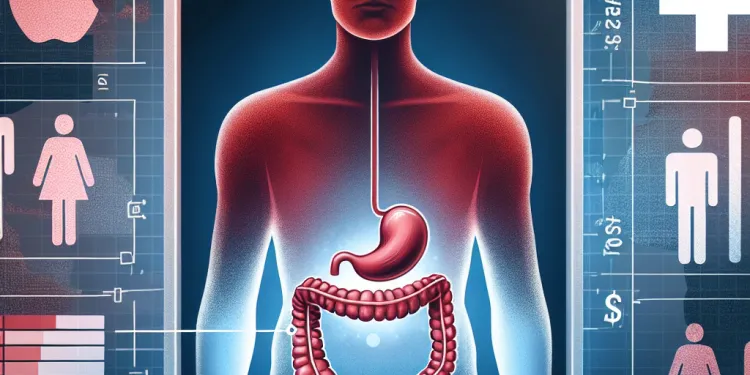
Is appendicitis common in any particular age group?
Relevance: 100%
-

What is Appendicitis?
Relevance: 66%
-

What causes appendicitis?
Relevance: 62%
-
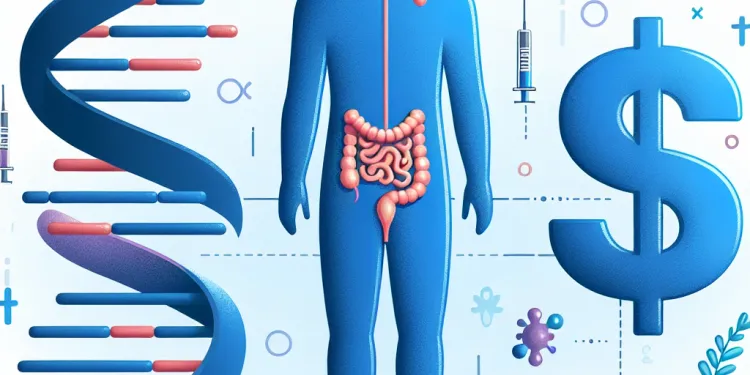
Is appendicitis hereditary?
Relevance: 61%
-
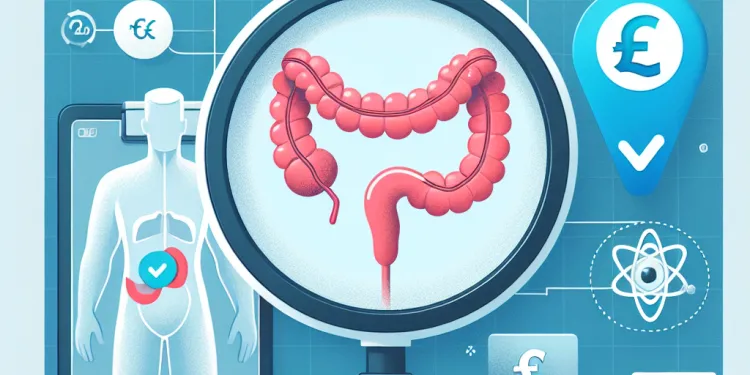
How is appendicitis diagnosed?
Relevance: 59%
-

Can diet or lifestyle changes prevent appendicitis?
Relevance: 57%
-

What is the treatment for appendicitis?
Relevance: 56%
-

What is the likelihood of needing surgery for suspected appendicitis?
Relevance: 54%
-

Can appendicitis go away on its own?
Relevance: 53%
-

Where is the pain located when you have appendicitis?
Relevance: 53%
-

What are the common symptoms of appendicitis?
Relevance: 53%
-

What are the potential complications of appendicitis?
Relevance: 53%
-
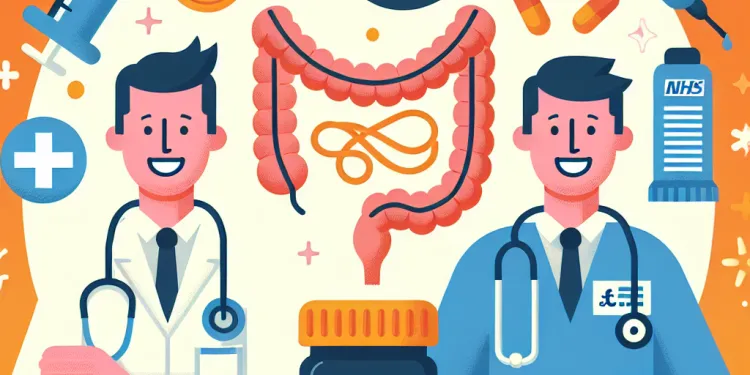
Can appendicitis be treated with antibiotics?
Relevance: 53%
-
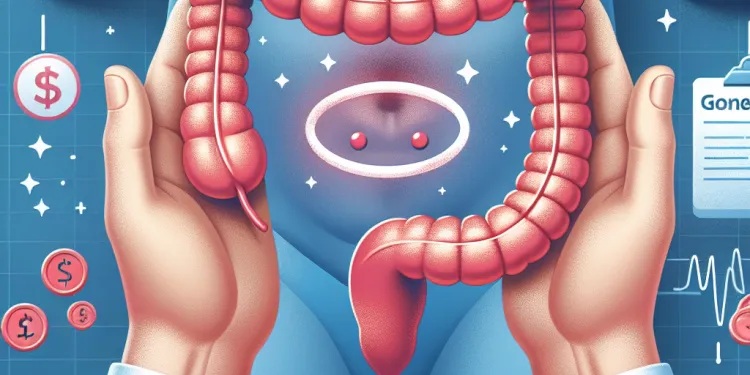
What happens if appendicitis is left untreated?
Relevance: 52%
-

How soon should you see a doctor if you suspect appendicitis?
Relevance: 51%
-

Is asthma more common in certain age groups?
Relevance: 50%
-

Can appendicitis occur more than once?
Relevance: 50%
-

What age group is most at risk for HPV?
Relevance: 49%
-

How is appendicitis different from other causes of abdominal pain?
Relevance: 48%
-

What age groups can benefit from self-testing?
Relevance: 48%
-

What age group is most at risk for grooming?
Relevance: 47%
-
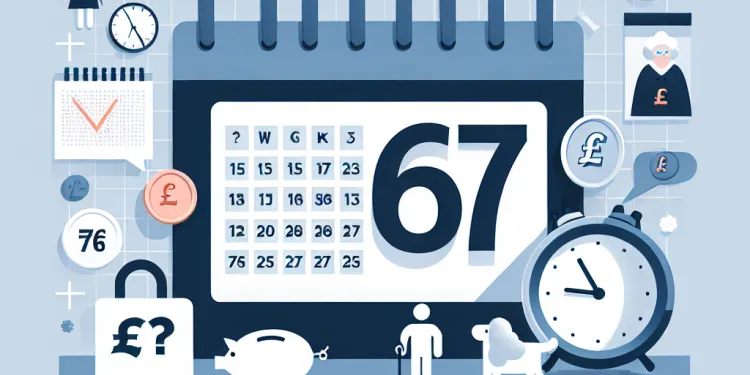
What age group will first see the state pension age at 67?
Relevance: 46%
-

What age groups are most at risk for concussions in rugby?
Relevance: 44%
-
Is aspirin more effective for certain age groups in preventing colorectal cancer?
Relevance: 44%
-

Digital Banking: A Surge in Adoption Amongst All Age Groups
Relevance: 36%
-

Are there any support groups for people with dementia in the UK?
Relevance: 33%
-

Can heart attack symptoms vary by age?
Relevance: 32%
-

Are there support groups for postnatal depression?
Relevance: 31%
-

Is there a specific age requirement for Hyrox participants?
Relevance: 31%
-

Can I learn first aid as a group?
Relevance: 31%
-

How can older people find hobby groups that align with their interests?
Relevance: 29%
-

How can older people find new hobbies and groups?
Relevance: 29%
-

What are peer support groups for community helpers?
Relevance: 29%
-

Are there support groups for those affected by testicular cancer?
Relevance: 29%
-

What is the Broader Group in the Warm Home Discount?
Relevance: 28%
-

How can older adults find travel or adventure groups?
Relevance: 28%
-

Is health linked to aging?
Relevance: 28%
-

Is HIV only a concern for certain groups of people?
Relevance: 28%
-
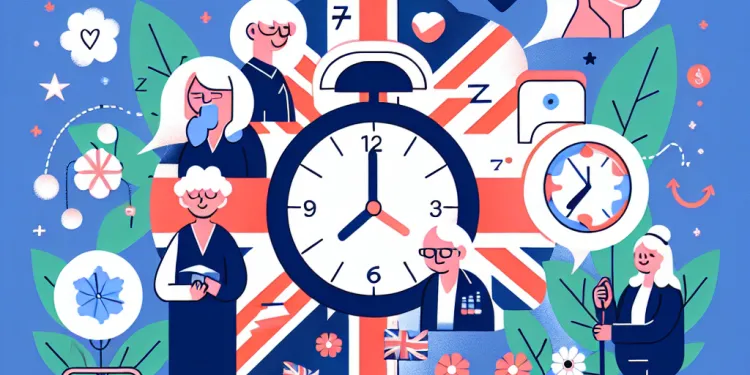
The Importance of Sleep for All Ages
Relevance: 27%
-

What are some common fears or hesitations older adults have about joining new groups?
Relevance: 27%
Introduction to Appendicitis
Appendicitis is a medical condition characterized by inflammation of the appendix, a small, tube-like organ attached to the large intestine. While not always a household concern, appendicitis is a relatively common surgical emergency. Understanding which age groups are most at risk can provide insight into prevention and early detection.
Prevalence of Appendicitis by Age
Appendicitis does not discriminate by age; however, it is notably more common in certain age groups. Statistics indicate that appendicitis primarily affects younger individuals, with the highest incidence rate occurring in people between the ages of 10 and 30. This age-related prevalence may be due to a range of factors, including developmental changes in the lymphatic tissue associated with the gut, and potential exposure to new pathogens during school and early adulthood.
Why is Appendicitis Common in Younger Age Groups?
The prevalence of appendicitis among teenagers and young adults can be attributed to several physiological and lifestyle factors. In this age group, lymphoid tissue in the appendix is abundant and tends to peak, potentially leading to obstructions more readily. Additionally, lifestyle factors such as diet changes and increased social interactions might expose individuals to factors that trigger such conditions. Nevertheless, appendicitis can occur at any age, albeit with notably lower frequency in older adults.
Signs and Symptoms in Common Age Groups
For individuals in the most affected age bracket, symptoms typically start as abdominal pain centered around the navel, migrating to the lower right abdomen, accompanied by nausea, vomiting, and fever. Parents, educators, and healthcare professionals should remain vigilant, as younger children may have difficulty clearly articulating their discomfort. Recognizing these symptoms early in at-risk age groups can lead to prompt medical intervention, minimizing the risk of complications such as a ruptured appendix.
Awareness and Education
Public health education and awareness campaigns targeting parents, school staff, and young adults can play a crucial role in reducing the incidence of appendicitis-related complications. Emphasizing the importance of seeking medical advice when common symptoms are identified is crucial. Through educational outreach, the potential for decreasing emergency surgeries and promoting early diagnosis becomes significantly more achievable.
Conclusion
In the UK, whilst appendicitis can affect anyone, it predominantly strikes those between the ages of 10 and 30. By focusing on educating these age groups and their caregivers about the signs, symptoms, and urgency of appendicitis, healthcare providers can better manage the condition and reduce its prevalence and complications. Continuing research and awareness efforts are essential to further understand the age-related patterns of this condition and optimize preventive measures.
Introduction to Appendicitis
Appendicitis is when the appendix gets swollen and sore. The appendix is a small tube attached to your big intestine. Appendicitis needs surgery to fix it. It is important to know who might get it so we can catch it early.
Who Gets Appendicitis?
Anyone can get appendicitis, but it happens more often in some people. Most people who get appendicitis are between 10 and 30 years old. This might be because of how their body changes or because they come in contact with new germs when they start going to school or as they grow up.
Why Do Younger People Get Appendicitis More?
Younger people, like teenagers and young adults, have more stuff in their appendix that can block it. Also, they might eat different foods or do more social activities, which can cause problems. Even though older people can get appendicitis, it doesn't happen as much to them.
Signs and Symptoms in Young People
For young people, appendicitis often starts with a tummy ache near the belly button, which then hurts more on the lower right side. They might also feel sick, throw up, or have a fever. It's important for parents, teachers, and doctors to notice these signs, as kids might not be able to explain how they feel. Spotting these symptoms early can stop the appendix from bursting and causing more problems.
Learning About Appendicitis
Telling parents, teachers, and young people about appendicitis can help stop serious problems. It's important to know when to see a doctor if you notice any of the common signs. Teaching people can help us catch appendicitis early so it's easier to treat.
Conclusion
In the UK, appendicitis mostly affects people between 10 and 30 years old. Teaching these people and their caregivers about appendicitis can help doctors manage it better. We need to keep learning and spreading the word about appendicitis so we can stop it from being a bigger problem.
Frequently Asked Questions
Is appendicitis more common in children or adults?
Appendicitis is most common in older children and young adults, particularly those between the ages of 10 and 30.
At what age is appendicitis most frequently diagnosed?
Appendicitis is most frequently diagnosed in people from ages 10 to 30, but it can occur at any age.
Can young children get appendicitis?
Yes, young children can get appendicitis, but it is less common compared to older children and young adults.
Is appendicitis rare in infants?
Yes, appendicitis is quite rare in infants.
Are teenagers at risk for appendicitis?
Yes, teenagers are at a higher risk for appendicitis, particularly those aged 13 to 19.
Can adults in their 40s and 50s develop appendicitis?
Yes, while less common, adults in their 40s and 50s can still develop appendicitis.
Is appendicitis common in the elderly?
Appendicitis is less common in the elderly compared to younger age groups.
Does the risk of appendicitis decrease with age?
Yes, the risk of developing appendicitis generally decreases after age 30.
What is the peak age for appendicitis incidence?
The peak incidence of appendicitis occurs in the second decade of life.
Can appendicitis occur in newborns?
Appendicitis is extremely rare in newborns.
Is there a gender difference in appendicitis incidence?
Males are slightly more likely to develop appendicitis than females, especially in the teenage years and young adulthood.
How common is appendicitis in toddlers?
Appendicitis is uncommon in toddlers but can still occur.
Can someone in their 60s or older get appendicitis?
Yes, people in their 60s or older can get appendicitis, but it is less frequent than in younger age groups.
What are the age-related risks for appendicitis?
The highest risk for appendicitis is between ages 10 and 30, with decreasing incidence as people age.
Is appendicitis genetic, increasing risk in certain age groups?
There may be a familial tendency, but appendicitis itself is not directly genetic, and age is the more significant factor in risk increase.
How prevalent is appendicitis in preteens?
Appendicitis can be relatively common in preteens, especially as they approach adolescence.
Are college-age individuals at higher risk for appendicitis?
Yes, individuals in their college years (late teens to early 20s) are at a higher risk for appendicitis.
Does appendicitis present differently in different age groups?
Yes, symptoms can vary with age, being more atypical in very young children and the elderly.
Is surgery always recommended for elderly patients with appendicitis?
While surgery is common, treatment plans for elderly patients are individualized due to the increased risk of complications.
Why is appendicitis less common in older adults?
Age-related factors such as changes in gut flora and lower prevalence of lymphoid hyperplasia may contribute to decreased incidence in older adults.
Who gets appendicitis more often: children or adults?
Appendicitis happens a lot in older kids and young adults. It is most common for people who are 10 to 30 years old.
How old are people most often when they get appendicitis?
Appendicitis usually happens in people who are 10 to 30 years old. But, anyone can get it, no matter how old they are.
Can young kids get a sore appendix?
Yes, young kids can get a sore appendix. The appendix is a small part inside the belly. When it gets sore, it is called appendicitis.
If you think a kid has a sore appendix, talk to a doctor. Some signs are a hurting belly, feeling sick, or not feeling like eating.
Using pictures or drawings can help explain what happens. Reading with someone can also make it easier to understand.
Yes, young kids can get appendicitis. But it does not happen as much as it does in older kids and young adults.
Do babies often get appendicitis?
Yes, babies don't get appendicitis very often. It's not common.
Can teenagers get problems with their appendix?
Teenagers might have trouble with a small part in their belly called the appendix.
To understand better, ask a doctor or nurse to explain. Pictures or videos can also help.
If you have a health book or app with pictures, you can use these tools too.
Yes, teenagers have a higher chance of getting appendicitis, especially those who are 13 to 19 years old.
Can people aged 40 and 50 get appendicitis?
Yes, people aged 40 and 50 can get appendicitis. This is when your appendix gets swollen and hurts.
Here are some tips to help:
- Use pictures to show what an appendix is.
- Use simple words to explain what swollen means.
- Listen to an audio version if it helps you understand better.
- Ask a grown-up if you have more questions.
Yes, adults who are 40 or 50 years old can get appendicitis, but it doesn't happen as often.
Do older people often get appendicitis?
Appendicitis is when a part inside your tummy called the appendix gets swollen and makes you feel sick.
Older people don't get appendicitis as much as younger people. But it can still happen.
If an older person has a tummy ache, they should tell a doctor.
It's good to use simple words and talk with someone who can help, like a friend or family member.
Pictures and videos can also help make things clearer.
Appendicitis happens less often in older people than in younger people.
Does the chance of getting appendicitis go down as you get older?
Yes, after you turn 30, you are less likely to get appendicitis.
How old are most people when they get appendicitis?
Most people get appendicitis when they are teenagers or in their early 20s.
Can babies get appendicitis?
It is very unusual for babies to get appendicitis.
Do boys and girls get appendicitis differently?
Appendicitis is when the appendix gets very sore and you might need to see a doctor. This question asks if boys or girls get appendicitis more often.
Ask a doctor or nurse if you're worried. Drawing pictures can help you understand. Use tools that read text out loud if you find reading hard.
Boys are a bit more likely to get appendicitis than girls. This happens more when they are teenagers and young adults.
How often do toddlers get appendicitis?
Appendicitis is when the appendix gets swollen and sore. It's not very common in toddlers.
If you think a toddler is sick and has belly pain, it's important to visit a doctor.
Using pictures or simple words can help toddlers explain how they feel.
If you are worried about understanding, ask a doctor or nurse to help explain things clearly.
Appendicitis doesn't happen a lot in young children, but it can still happen.
Can people over 60 get appendicitis?
Yes, people over 60 can get appendicitis. Appendicitis is when the appendix gets sore and swollen.
If you have a sore belly, tell a doctor.
It helps to have someone explain big words. A picture of the body might help you learn.
People who are 60 years old or older can get appendicitis, but it happens less often than in younger people.
Some tools that can help you understand or read better are:
- Text-to-speech programs that read aloud.
- Using a dictionary for hard words.
- Reading with a friend or family member.
How does age affect the chances of getting appendicitis?
Appendicitis means the appendix is swollen and sore. Different ages have different chances of getting it.
The appendix is a small part inside your belly. It can get sore for different reasons. Here is how age can change the risk:
- Kids and Teenagers: They have a higher chance of getting appendicitis. It often happens to kids who are 10 to 20 years old.
- Babies and Young Kids: It can still happen, but it is less common.
- Adults: The chance is lower, but adults can still get appendicitis.
Supportive Tools and Techniques:
To help you understand more about appendicitis, you can:
- Look at pictures of the body to see where the appendix is.
- Watch videos made for kids about appendicitis.
- Use simple words and talk to a doctor if you have questions.
Most people get appendicitis between ages 10 and 30. It happens less often as people get older.
Is appendicitis genetic, making some ages more at risk?
The appendix is a small tube in your belly. Sometimes it gets sick. This is called appendicitis.
Some people wonder if appendicitis runs in families. This means if your family has had it, you might get it too.
People also ask if certain ages get appendicitis more often. Like do kids, teens, or adults get it more?
If you have questions, talk to a doctor. They can give you good advice. You can also use tools like picture diagrams or listen to stories about the appendix.
Appendicitis can sometimes run in families, but it’s not something you inherit from your parents. Age is more important for seeing who might get it.
How common is appendicitis in kids aged 9-12?
Appendicitis happens when the appendix gets swollen and sore. It can happen to kids who are getting older, especially when they become teenagers.
Do young adults have a higher chance of getting appendicitis?
Yes, people who are in college or are teenagers and young adults (about 18 to 24 years old) have a higher chance of getting appendicitis.
If you want help reading, you can use audiobooks, or ask someone to read with you.
Do people of different ages get different signs of appendicitis?
Yes, signs can change with age. They might look different in very young kids and older people.
Should older people always have surgery when they have appendicitis?
Appendicitis means your appendix is sick. Sometimes, doctors say you need an operation to feel better.
For older people, doctors think carefully. Sometimes they can use medicine instead of surgery.
If you or someone you know is older and has appendicitis, talk to the doctor. Ask what is best: surgery or medicine.
Bring someone with you to the doctor. They can help you remember what the doctor says.
Surgery happens a lot. But, doctors make special plans for older people. This is because older people can have more problems during and after surgery.
Why do fewer older people get appendicitis?
Appendicitis is when a small part in your tummy called the appendix gets swollen and sore.
It is less common in older people because:
- Their appendix might have changed or shrunk as they got older.
- They may have had their appendix removed when they were younger.
Here are some things that can help:
- Using simple words to talk about it.
- Looking at pictures or videos to understand better.
As people get older, their bodies change. These changes in the tummy's germs and the body's immune parts might mean older people get sick less often.
Useful Links
This website offers general information and is not a substitute for professional advice.
Always seek guidance from qualified professionals.
If you have any medical concerns or need urgent help, contact a healthcare professional or emergency services immediately.
Some of this content was generated with AI assistance. We’ve done our best to keep it accurate, helpful, and human-friendly.
- Ergsy carfully checks the information in the videos we provide here.
- Videos shown by Youtube after a video has completed, have NOT been reviewed by ERGSY.
- To view, click the arrow in centre of video.
- Most of the videos you find here will have subtitles and/or closed captions available.
- You may need to turn these on, and choose your preferred language.
- Go to the video you'd like to watch.
- If closed captions (CC) are available, settings will be visible on the bottom right of the video player.
- To turn on Captions, click settings .
- To turn off Captions, click settings again.
More Items From Ergsy search
-

Is appendicitis common in any particular age group?
Relevance: 100%
-

What is Appendicitis?
Relevance: 66%
-

What causes appendicitis?
Relevance: 62%
-

Is appendicitis hereditary?
Relevance: 61%
-

How is appendicitis diagnosed?
Relevance: 59%
-

Can diet or lifestyle changes prevent appendicitis?
Relevance: 57%
-

What is the treatment for appendicitis?
Relevance: 56%
-

What is the likelihood of needing surgery for suspected appendicitis?
Relevance: 54%
-

Can appendicitis go away on its own?
Relevance: 53%
-

Where is the pain located when you have appendicitis?
Relevance: 53%
-

What are the common symptoms of appendicitis?
Relevance: 53%
-

What are the potential complications of appendicitis?
Relevance: 53%
-

Can appendicitis be treated with antibiotics?
Relevance: 53%
-

What happens if appendicitis is left untreated?
Relevance: 52%
-

How soon should you see a doctor if you suspect appendicitis?
Relevance: 51%
-

Is asthma more common in certain age groups?
Relevance: 50%
-

Can appendicitis occur more than once?
Relevance: 50%
-

What age group is most at risk for HPV?
Relevance: 49%
-

How is appendicitis different from other causes of abdominal pain?
Relevance: 48%
-

What age groups can benefit from self-testing?
Relevance: 48%
-

What age group is most at risk for grooming?
Relevance: 47%
-

What age group will first see the state pension age at 67?
Relevance: 46%
-

What age groups are most at risk for concussions in rugby?
Relevance: 44%
-
Is aspirin more effective for certain age groups in preventing colorectal cancer?
Relevance: 44%
-

Digital Banking: A Surge in Adoption Amongst All Age Groups
Relevance: 36%
-

Are there any support groups for people with dementia in the UK?
Relevance: 33%
-

Can heart attack symptoms vary by age?
Relevance: 32%
-

Are there support groups for postnatal depression?
Relevance: 31%
-

Is there a specific age requirement for Hyrox participants?
Relevance: 31%
-

Can I learn first aid as a group?
Relevance: 31%
-

How can older people find hobby groups that align with their interests?
Relevance: 29%
-

How can older people find new hobbies and groups?
Relevance: 29%
-

What are peer support groups for community helpers?
Relevance: 29%
-

Are there support groups for those affected by testicular cancer?
Relevance: 29%
-

What is the Broader Group in the Warm Home Discount?
Relevance: 28%
-

How can older adults find travel or adventure groups?
Relevance: 28%
-

Is health linked to aging?
Relevance: 28%
-

Is HIV only a concern for certain groups of people?
Relevance: 28%
-

The Importance of Sleep for All Ages
Relevance: 27%
-

What are some common fears or hesitations older adults have about joining new groups?
Relevance: 27%


